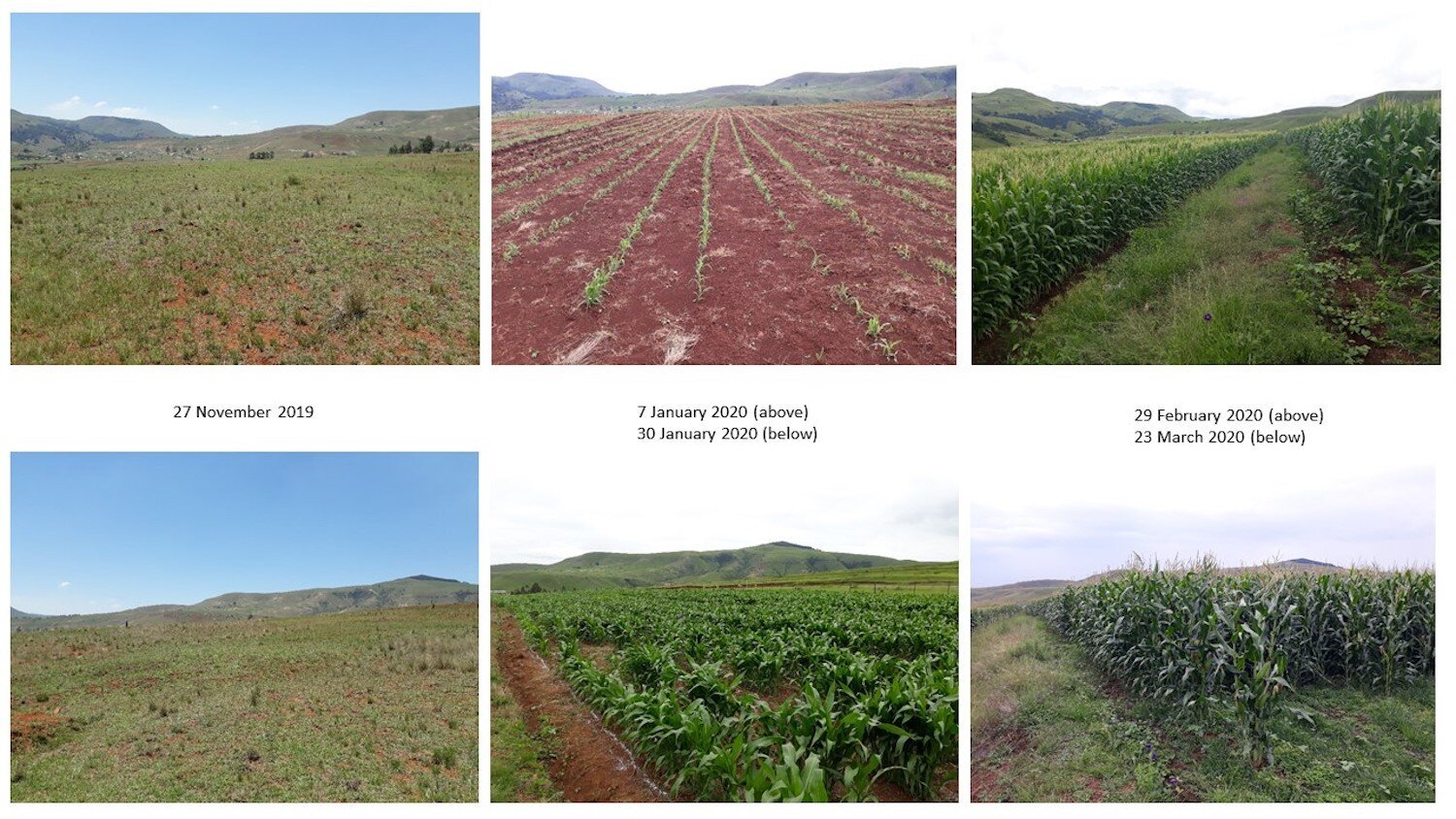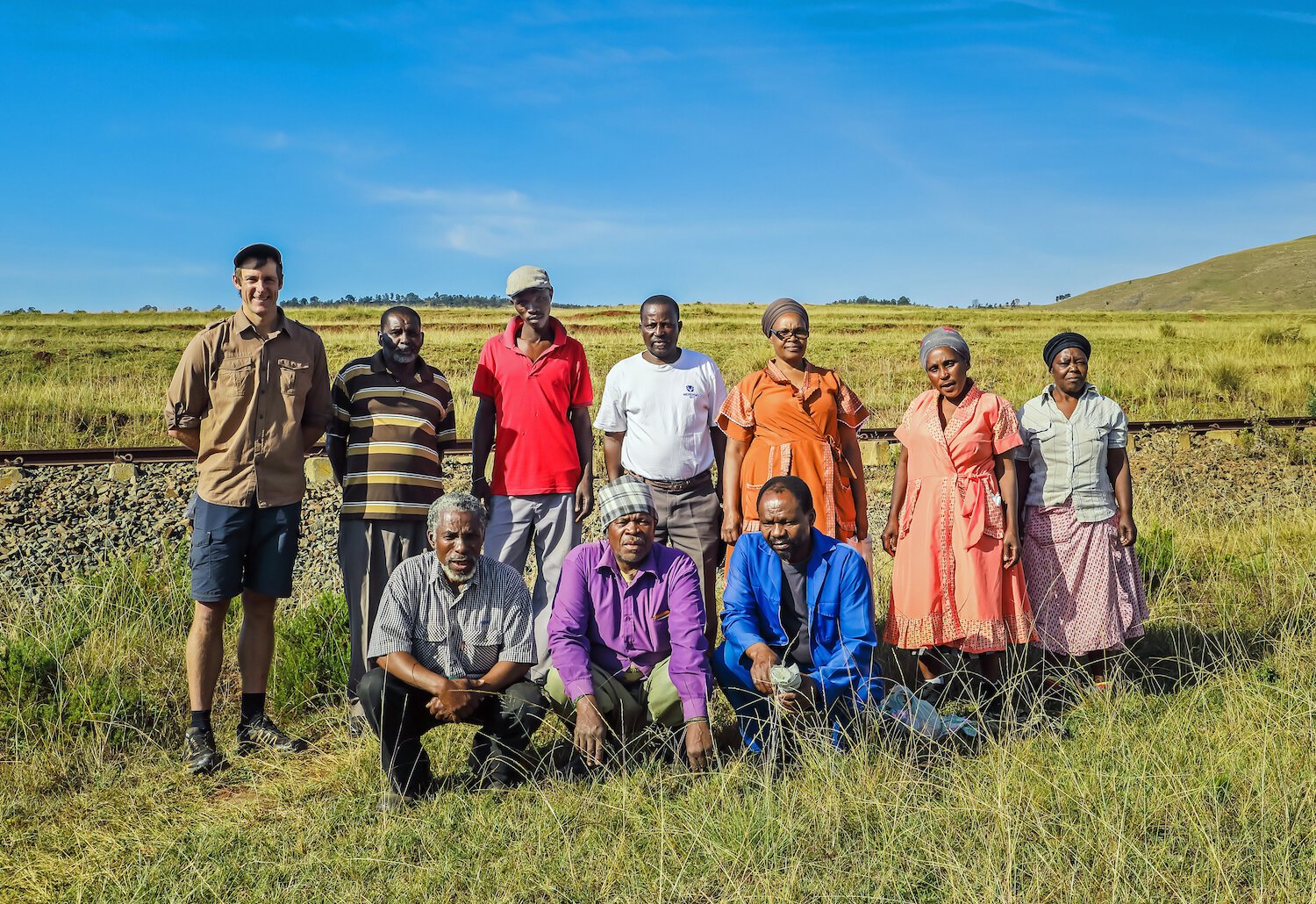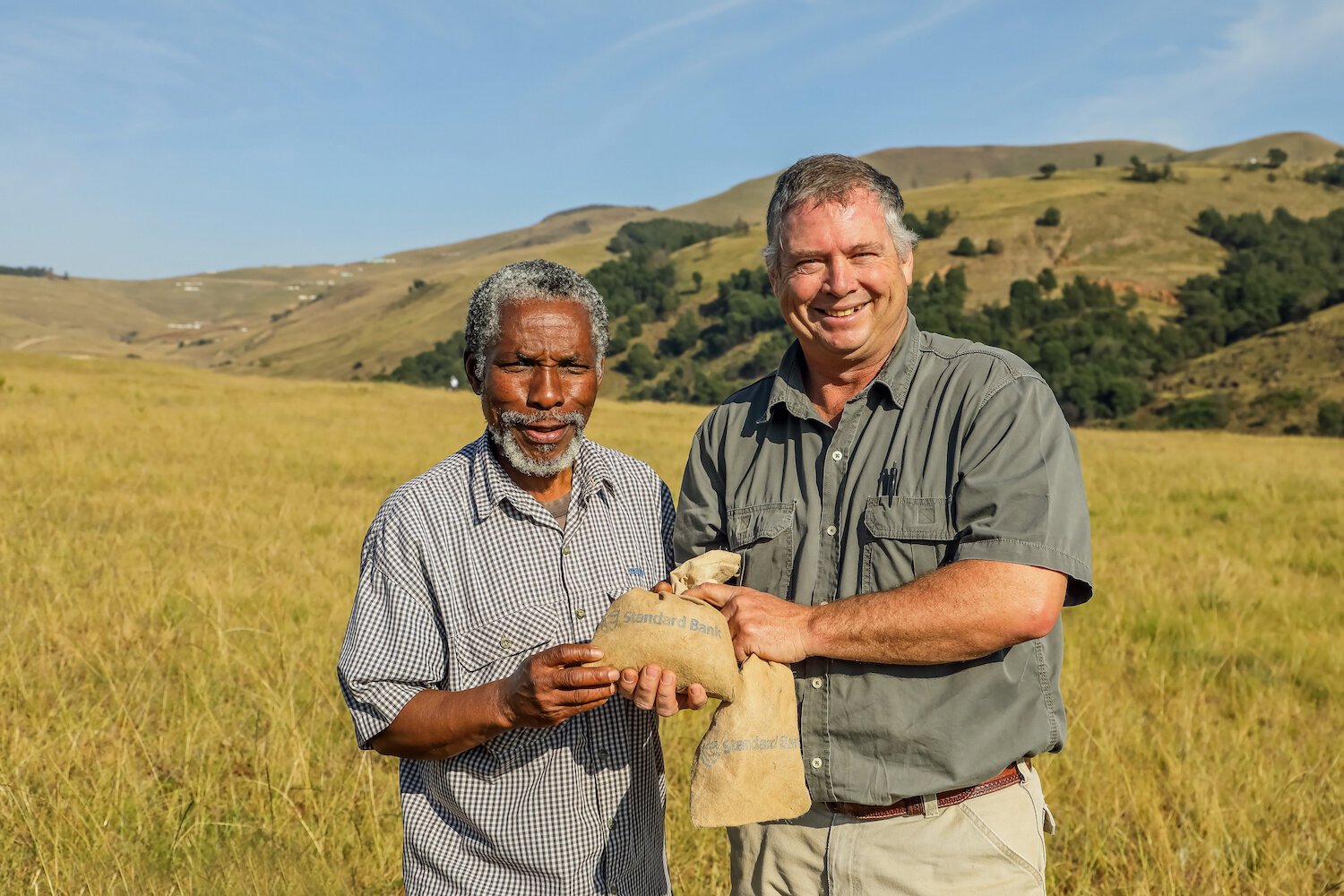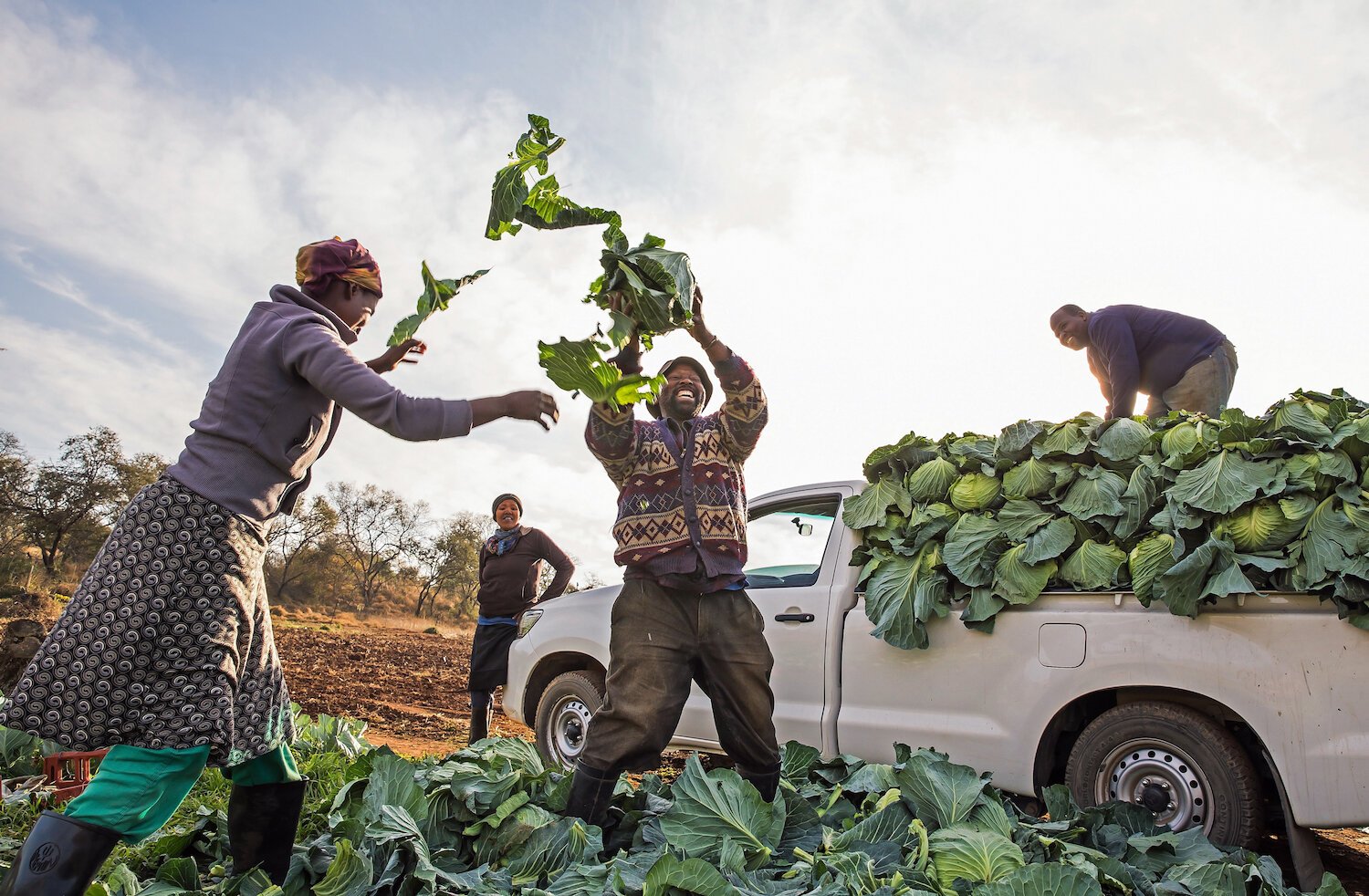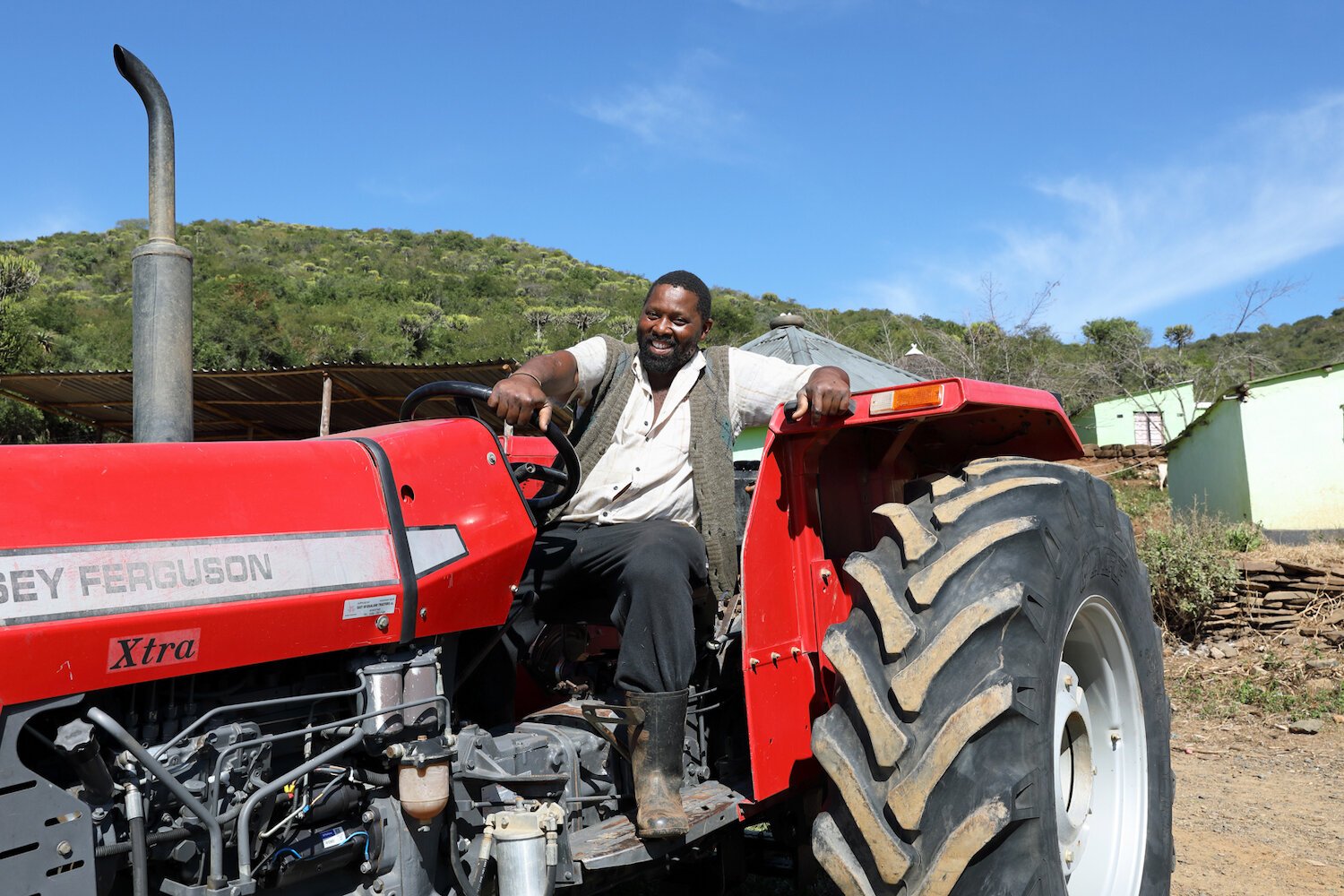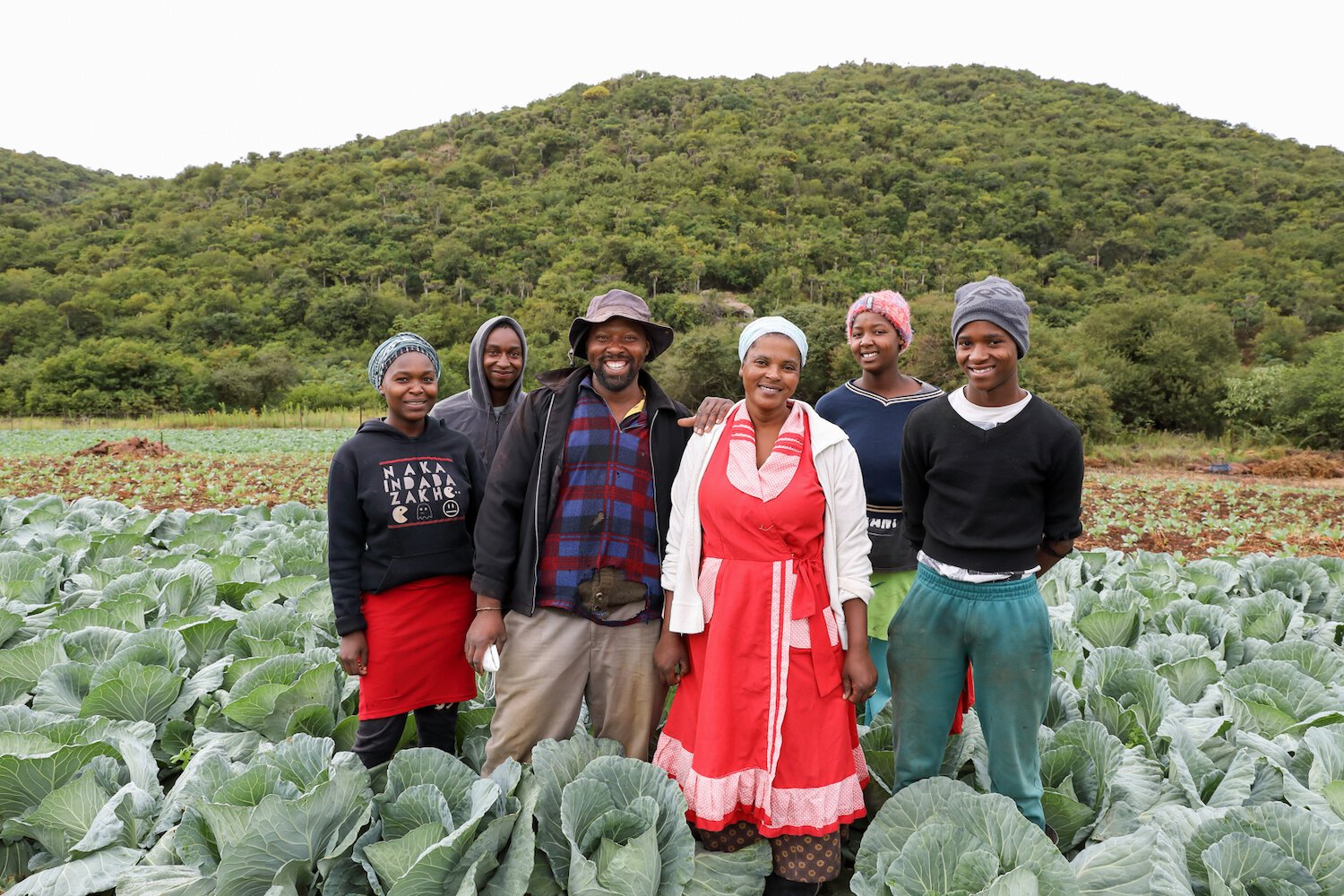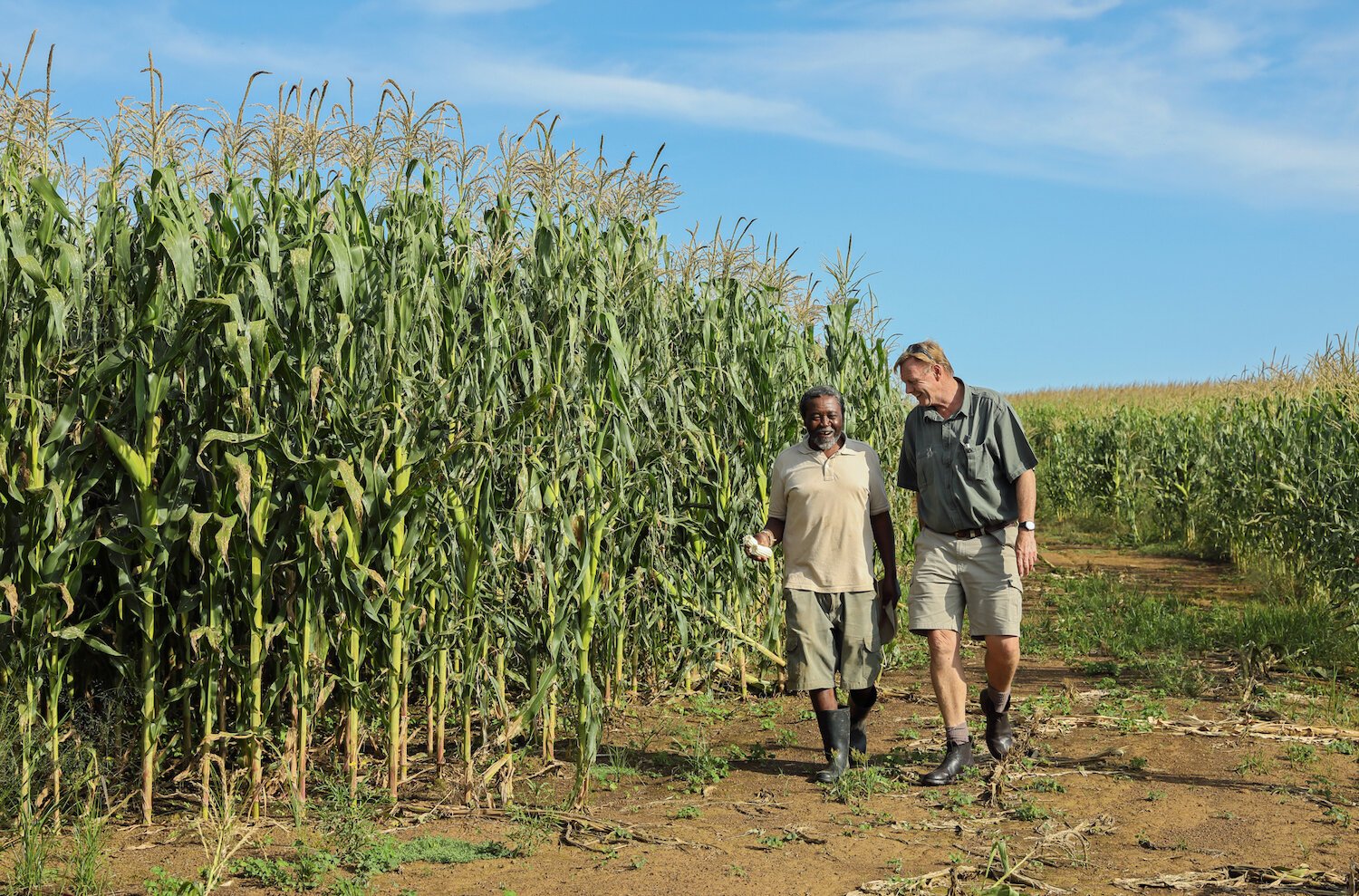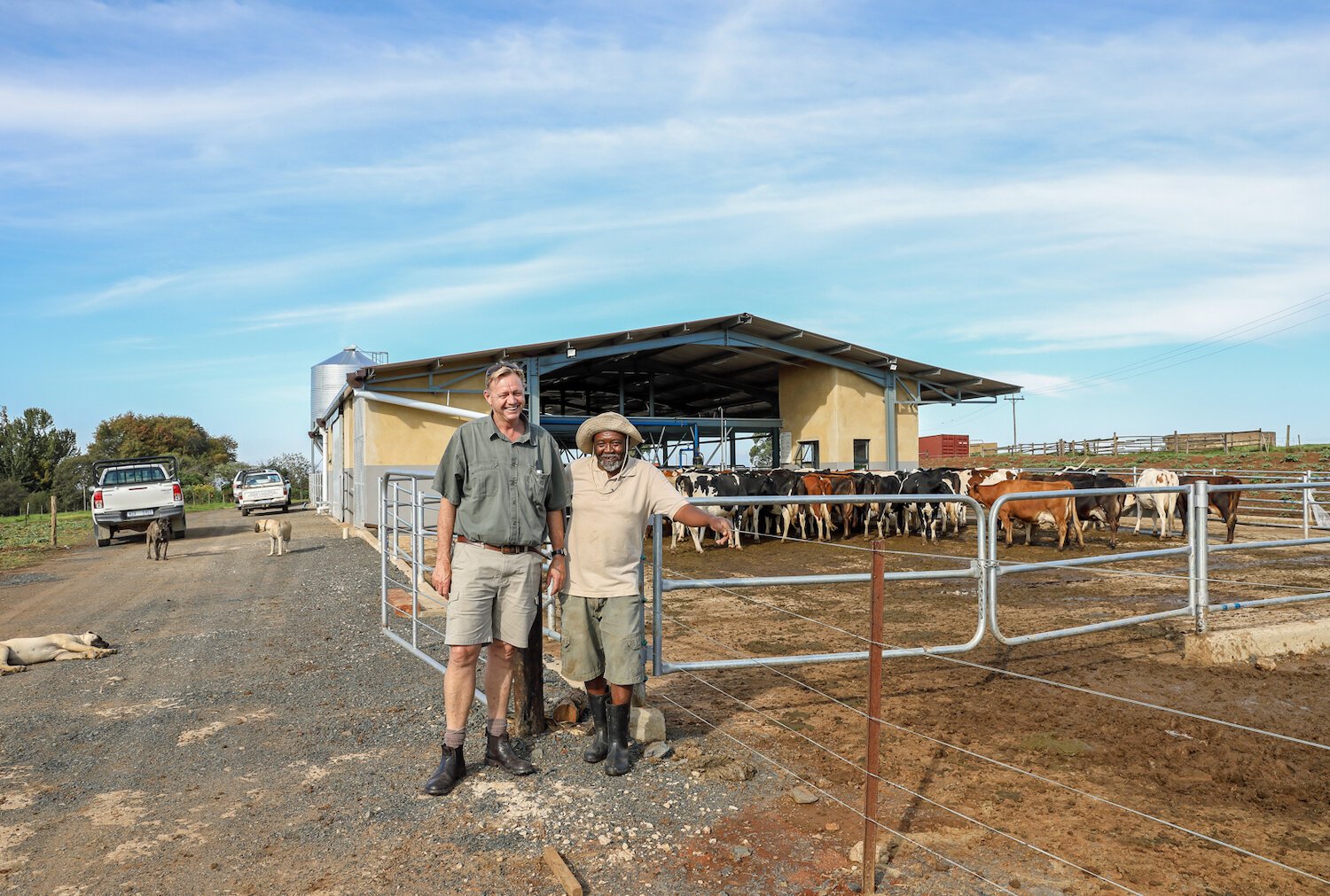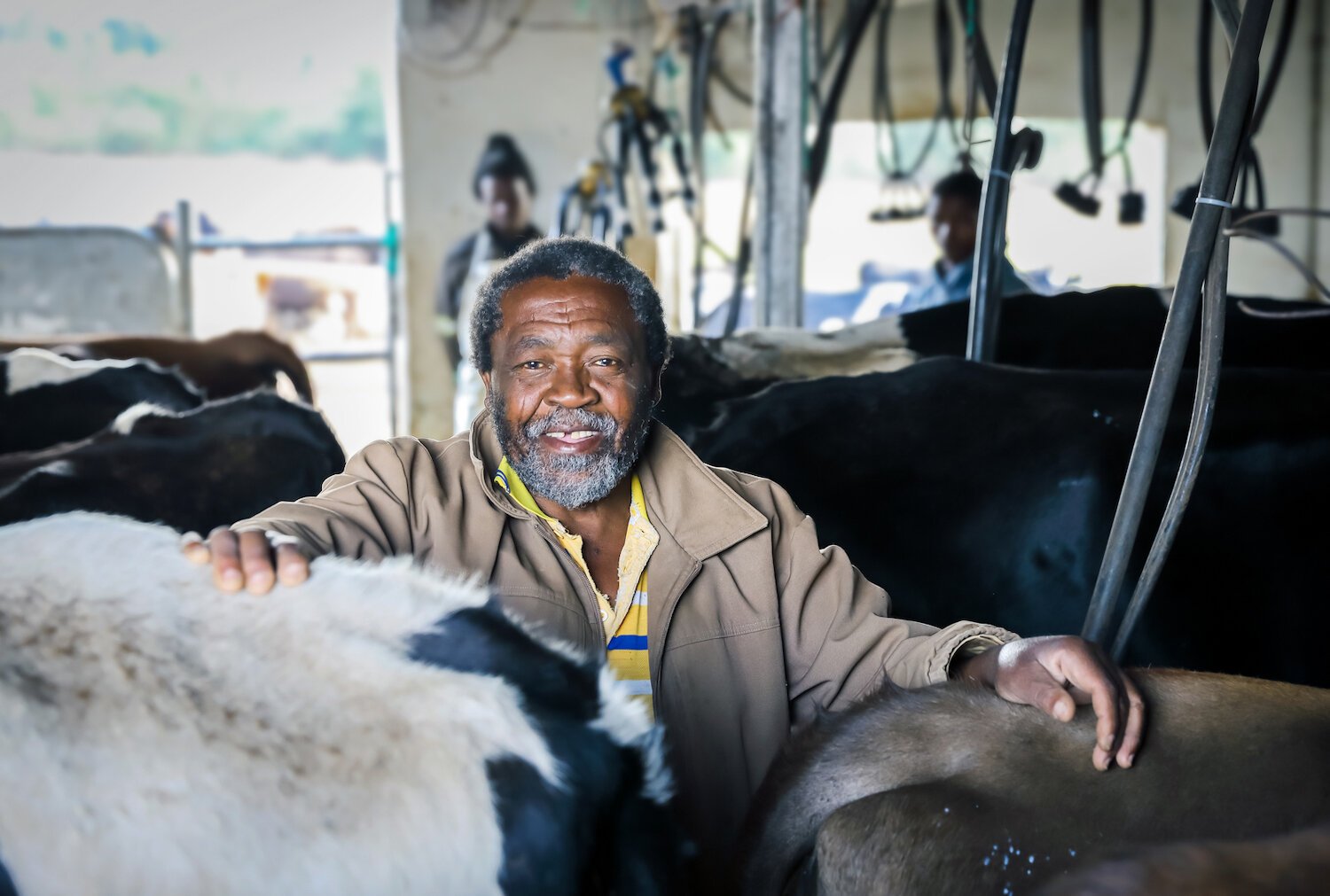AGRICULTURAL MENTORSHIP PROJECTS (AMP)
A broad spectrum of projects exist under the HGA umbrella from subsistence to commercial in scale.
HGA acknowledges that there are needs to be met across disparate scales but that where success is achieved through supporting projects, however small, that this will promote further success. In all cases, mentorship relationships are an important conduit for the transfer of skills between established and aspiring farmers and are crucial for ensuring that the purpose of any investment in a project, be it in time or financial, is fully realised. This is encapsulated in the following project principles which HGA endeavours to employ:
The initiative must come from the farmer or the community themselves indicative of the level of drive and passion required to be successful in agriculture.
Financial investment in a project is designed to offer a ‘leg up’ but should not raise expectations of on-going support of this nature in order to avoid engendering a ‘handout’ mentality.
The objective is skills development through mentorship partnerships with the ultimate goal being the self-sufficiency of the aspiring farmer or community involved.
Project progress is monitored and evaluated through structured report writing and feedback meetings between the facilitator (HGA), the mentor and the aspiring farmer.
The mentee is required to display accountability and transparency with regards to the financial management of their enterprise and must be prepared to register their business with SARS if they have not done so already.
The four projects described here are examples of what is being achieved through farmer to farmer mentorship.
STRACHAN’S HOUSEHOLD FOOD SECURITY PROJECT —HIGHFLATS & UMZIMKHULU
Mr Strachan was approached by a staff member in September 2009, requesting assistance with her home garden plot in the Mazabekweni community near the Strachan’s farm in Highflats. Mr Strachan agreed to this request provided agro-ecological cultivation methods were used as opposed to tillage with a tractor which is typically the approach adopted by those in rural communities who can afford to hire a tractor. Mr Strachan provided goat-proof fencing, manure, tools and seed to the household and a demonstration was performed for all interested community members. Mr Strachan was interested to see if the adoption of this approach could boost the household’s food security in terms of access to a secure, adequate and more diverse diet. This developed into a pilot project which ultimately formed the basis from which to expand the study to one adequate for a Masters thesis, involving eight, mainly female-headed households.
The cultivation practices taught are appropriate for those with small gardens (± 0.25 Ha in size) as the labour demands can typically be met by the household members themselves. A process of farmer-to-farmer extension has developed over time involving labour assistance, shared decision-making and knowledge sharing and support. This project and its principles have been rolled out to roughly 50 households in Mazabekweni alone and has begun to spread to neighbouring villages as news of their success has disseminated. The community shares the benefits of the hammermill which locals can use at a fee to convert their home-grown maize to mealie meal. The funds generated from this go into a stokvel and are then used to subsidise inputs required by the local farmers. The sound governance of profits yielded has resulted in the institutions autonomy and the ability to deal promptly with setbacks.
Mr Strachan is now using the same approach to help two communities residing on the farm he grew up on in the Umzimkhulu area, which was incorporated into the Transkei in the 1980s. There are now around 100 households involved in the project there and Mr Strachan offers support through the bulk purchase and distribution of seed and fertilizer. These inputs are re-packaged into quantities suitable for households tending home gardens and at a cost that is affordable for them. HGA, through Standard Bank funding, was able to provide households who have recently joined the project with the basic tools needed for them to begin cultivation of their home gardens. The simple yet effective techniques being taught communities only require garden forks and rope which is used to measure the planting intervals for the maize and vegetables that are grown.
MPHITHINI CO-OPERATIVE —DONNYBROOK
The co-operative consisting of 13 members is officially registered with the Department of Agriculture and Rural Development and has been given permission to occupy 20 Ha from the local tribal authority (Ngonyama Trust) on which they are wanting to cultivate maize, dry beans, potatoes and cabbages. The co-operatives’ three biggest resources are: (1) access to land; (2) access to manpower; and (3) access to a market in the expanse of rural communities within which the project is located and the towns of Bulwer (26km away) and Donnybrook (12km away).
A key figure in the Mphitihini team is Mr Mdeleli Mazibuko; a dynamic gentleman who has lived in this community all is life. He approached HGA vice-chairperson, Mr Rob Stapylton-Smith several years prior to HGA’s launch, seeking agricultural guidance. This connection resulted in our first meeting with the co-op in August 2017 and after exploring different options of how we could assist the group we, thanks to Standard Bank grant funding, were able to commit ourselves to the launch of the project and the planting of 2Ha of maize to be sold as grain. An MoU was signed and required the co-op to cover 25 % of the cost of the project in the form of an interest-free loan to be paid back over five months.
The area was fenced and the land, which had not been cultivated for at least two decades, was prepared for the planting of the maize which took place in December 2019. The crop did well and managed to come through the hail season unscathed and the co-op have used their strength in numbers to carry out most jobs by hand including the spreading of fertilizer, spraying of chemicals, weeding, harvesting of the maize, shelling and bagging. The income derived from the first season crop will be used to cover the cost of the 2020 planting season. The co-op are now considering the option of planting potatoes on the current maize lands and hope to be able to expand the area under cultivation in the near future.
We would like to thank the following sponsors and contributors for their roles in making this project possible:
Standard Bank | Covering the cost of the fencing material, land preparation and planting, fertilizer, chemicals and other equipment.
Link Seed | Sponsorship of Round Up Ready Yellow Hybrid maize seed
Mr. Ross Treleaven | Assisting with the spreading of the MAP
GWK | Sponsorship of 600kg of urea
Mr. Rob Stapylton-Smith | Sponsorship of some of the chemicals required in the spray programme; a T-bar adaptation for a knapsack to spray above head-height maize; and bags, cotton and needles for packaging.
Omnia | To Mr. Graeme Horne for doing the soil analysis
De Heus | Agreeing to purchase the grain from the co-op
Farmers Agri-care | To Mr. Bruce Humphries for offering on-going guidance on the spray programme
GEHLA MNGOMA, BEESIE STONE AND CRAIG MACFARLANE —PONDEROSA FARM, IXOPO
Mr Beesie Stone’s farm, Ponderosa, was bought by the government in 2008 in the land reform process. A community consisting of 18 families now resides on the land and it is governed by a trust comprising seven members including a ward councillor. The Stone family previously ran a dairy, grew cash crops and produced in the order of 120 tonnes of maize per year on the 600 Ha property. Mr Beesie Stone, along with his former business partner and neighbour, Mr Craig MacFarlane, have mentored one of the occupants of the land, Mr Gehla Mngoma, since leaving the farm. Mr Mngoma is an enthusiastic farmer who desires to make use of the land on which he is living and is currently cultivating 3 Ha of tomatoes, cabbages, beans and potatoes on a rotational basis and under irrigation. Mr Mngoma receives assistance from his wife and three children when they are not attending school and then hires 15 people per day from the local community between the months of February and June.
Besides the ongoing support received from his mentors Mr Beesie Stone and Mr Craig Macfarlane and neighbour, Mr Bruce Mitchell, Mr Mngoma has received the following assistance arranged through HGA:
In February 2018, 500kg of gypsum were donated by Geyser’s Fertilizer and Lime
In July 2018, Mascor provided a John Deere demo tractor on loan for 6 months
In January 2019, Mascor loaned another John Deere demo tractor for a further 6 months/250 hours.
In April 2020, with Standard Bank grant funding, we made a R30 000 contribution towards a second-hand, 2012, Massey Ferguson 290, 2x4 tractor. The Ubuhlebezwe Local Municipality LED department also contributed R35 000 towards this with Mr. Mngoma paying the balance of the payment over two years.
Mr Mngoma has also benefited from the assistance of Mrs Avril Shewan and Mrs Elrina Venter who have offered their personal time to assist upcoming farmers with book-keeping for their businesses. As mentioned previously, HGA is on a drive to promote and ensure transparency and accountability among its project participants and having the assistance of skilled individuals such as these ladies makes this achievable. Mrs Shewan and Mrs Venter began by putting together a set of financials for Mr Mngoma utilising backdated information as the first step towards getting his business registered with SARS. More recently, HGA director Mr. Dougie Strachan has been working alongside Mr. Mngoma to teach him how to keep a set of his own books from the farm as a step towards handing over the financial management to him going forward.
MR DUCKY NGCOBO AND MR ROB STAPYLTON-SMITH —SUMMERHILL FARM, EASTWOLDS
Mr Ngcobo was born in 1954 on a beef and dairy farm next door to Mr Stapylton-Smith’s farm Eastwolds, near Donnybrook. After working as a truck driver for some time Mr Ngcobo was then able to invest in a taxi business. His experience growing up on a commercial farm obviously left an indelible mark though as when the opportunity arose in 2002 to purchase the 120Ha, Summerhill Farm, Mr Ngcobo seized this, buying the farm for cash. Fortuitously for Mr Ngcobo, Summerhill shares a boundary with Eastwolds and so in the same year, Mr Stapylton-Smith took up the role as mentor to the upcoming commercial dairy farmer.
Whilst Mr Bredin and Mr Stapylton-Smith were moving forward with plans to initiate Harry Gwala Agri, Mr Bredin succeeded in inviting the then MEC for Agriculture in KZN, Mr Cyril Xaba, to visit Mr Ngcobo’s farm. Mr Xaba was impressed by what he saw and it was suggested that a business plan be put together for infrastructural upgrades to the farm, which Mr Stapylton-Smith did in consultation with Mr Ngcobo. The plans were approved and financed by the Agribusiness Development Agency and in 2018 upgrades to the farm took place and included water reticulation, the fencing of camps for rotational grazing and the building of roads. These changes, along with continual improvement in the management of the farm, have resulted in Mr Ngcobo doubling the milk production he obtains from his herd of 150 cows.
Mr Ngcobo has accomplished much despite having only completed grade six at school. What he lacks in formal education he makes up for in his positive, entrepreneurial approach to his business. Further expansion is now taking place with the ADA having recently financed the building of a new 20-point swing-over dairy which has been operational since the beginning of March 2020. Dramatic improvements in efficiency are already evident with milking time having dropped from three hours to one and the process now only requiring three people as opposed to six or seven. Feeding in the parlour is now an automated process, a great upgrade on the three-step manual process used before, while washing down the dairy is now also substantially quicker.
A new manager, Mr Loyiso Nomvalu, started at Summerhill in January 2020 and with his AI experience has had a notable impact in improving the progeny on the farm. Mr Ngcobo also has one of his best maize crops this season on account of meticulous fertilizer and chemical application and the guidance of his mentor Mr Stapylton-Smith.
Mr Stapylton-Smiths secretary, Mrs Venter, has been working tirelessly to assist Mr Ngcobo with the governance side of his business by registering his staff with UIF, Workman’s Compensation and PAYE. In a move to promote accountability and transparency Mr Ngcobo has also authorised Mrs Venter to transact on his banking account allowing her to administer comprehensive book-keeping and compliance with SARS.


